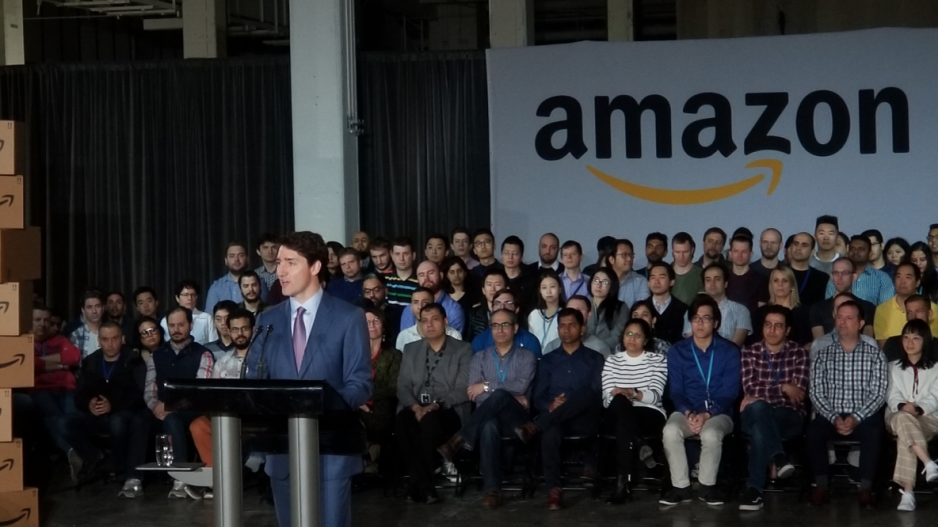Prime Minister Justin Trudeau recently flew in from Ottawa to make the big tech announcement, the perfect photo op: Amazon will add 3,000 new jobs in Vancouver and take over the old Canada Post building on Georgia Street.
In reality, Amazon will do more of what it has been doing since 2011: to meet the challenges of a severe shortage of U.S. tech workforce, Amazon will keep expanding its Canadian footprint, where a generous immigration program provides opportunity to complement Canadian talent with the brightest from around the globe. High-paying clean jobs, contributing millions to the Canadian economy, helping the underpaid local tech workforce demand better salaries. Yes, it will create a problem in the short run for local companies facing a shortage of their own, but building this workforce is essential to become a global innovation hub. But what happens when the same forces that brought Amazon to Vancouver bring one of its competitors?
There are already rumours Facebook is reopening its Vancouver office this fall, and those exposed to how it played out in the U.S. know Facebook is not coming after excess talent; it’s coming to nab talent from Amazon. Seattle provides a prime example.
When Facebook came, it offered big salaries to free tech employees from the annual stock-vesting golden handcuffs tech companies like Amazon, Microsoft and Expedia had on long-term employees. Not every professional got top dollar but it was enough to lift median salary in Seattle by more than 15% in three years.
For Vancouver to become a real technology hub, we need these employees to stay, grow and create their own success stories here, but if we don’t create affordable family-sized housing, that will never happen.
Traditionally young companies make up for lower pay by offering generous equity, but people can’t pay the rent with equity. And when well-paid tech professionals are struggling, what chance do people on average salaries have?
We already have a shortage of teachers, nurses and other essential professionals, and the quality of life is bound to deteriorate just when these new tech professionals will reach their peak risk-taking years or are starting a family and have become Canadians citizens.
Even if Amazon isn’t relocating its workforces, there are many other companies ready to snatch them for U.S. cities that offer better pay and are less hostile toward families.
Real estate developers will tell us we just have to build more, but we have been doing exactly that for years and it has become more expensive. Our politicians have lofty ideas but no vision.
Fortunately for those looking for a solution, Seattle also shows what is possible. Even with a strong job growth, it has managed to reverse the trend of double-digit rent increases.
In April, rents in Seattle increased by only 1%. Because while Vancouver was building condos, Seattle was building rental apartments – apartments where owners don’t make any money when they are kept empty, where speculators have no interest in holding on to the property and where rent is reduced if someone earning locally cannot pay.
Although our current visionaries would love the imported solution, we have to be cautious too. Even when it’s a rental building we cannot let it displace vulnerable residents in areas like the Downtown Eastside and Mount Pleasant, which need stronger protection from gentrification displacing locals from their homes.
But plans for areas like the Cambie corridor and the River District need to be revised to build rental apartments. Luckily for those willing to take this bold step, the provincial government just gave municipalities the power to rezone for rental-only building.
We have even seen the idea show up in the housing platform for one municipal party – ProVancouver – newcomers on the scene. Now the question is, will other parties have the foresight and prepare Vancouver for the next big tech company? •
Raza Mirza is a software engineer and the director of government relations with Housing Action for Local Taxpayers.




